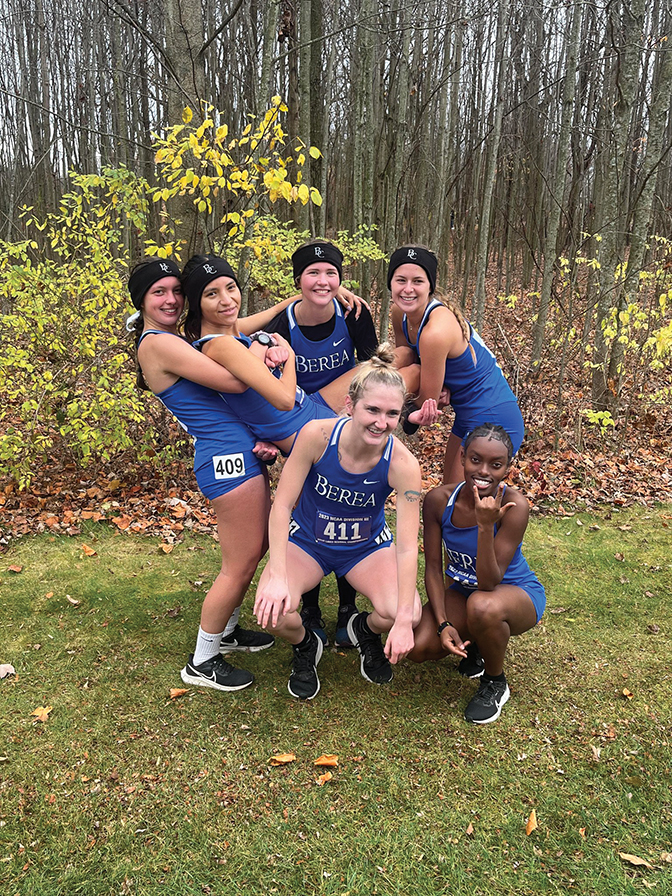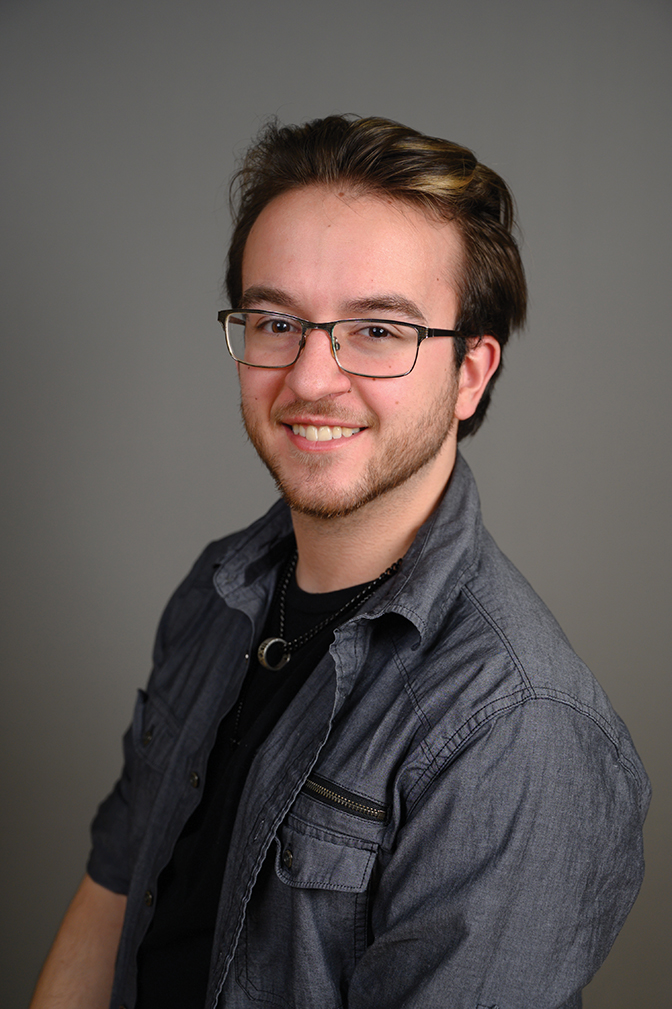Transitioning from high school to college can be a daunting task for any student, but it is exceptionally more difficult when students do not know where to turn for support once they arrive. Involvement on Berea’s campus is what makes students feel like they have a network they can count on.
Jasiella ’25 faced challenges before she even entered college. Before coming to Berea, she was experiencing homelessness and “living paycheck to paycheck.” When she was a first-year student, it was school policy that first-years could not have cars, which presented a problem for her as she had nowhere to keep her car.
Then, she met Gus Gerassimides, interim vice president for Student Life, who worked with her to bring her car in the fall.
Coming to Berea was an adjustment for Jasiella as well because new places and directions have always been difficult for her. “The first few weeks, I would get lost every single day just going from class to class,” she said.

Her teammates from the track and field and cross-country teams would help her through the confusion, and she would arrive to class almost on time. Being a part of a team made Jasiella instantly feel connected to the campus. Teammates were a large part of that, but another aspect of support for Jasiella was her coach, Michael Thomas ’13.
“Any time I have had a bad day or need advice on something, Coach Mike is always there for me,” she explained, remembering when she was not able to get to dining before one of her classes. Coach Mike made sure she had access to food through the Athletics nutrition center, a room stocked with nutritional snacks specifically for student-athletes.
Other students on campus have found the help they need through the Office of Student Success and Transition, which aims to help students with the many choices they make in their first couple of years. Sophomores are faced with the creation of their curriculum plan, which can be daunting for many, including Ayden ’26.
“When I was trying to map out the next four semesters, all the classes swirled together until I sat down with someone,” he said.

Ayden’s plan became more complicated when he found out he would need surgery over the summer. The following semester would need to not be as academically strenuous, and he needed an extension of term. Ayden worked with his advisors, Disability Services and the Registrar’s office to get the accommodations he needed.
“Having a network of people who care was the best possible outcome for me because I needed all the help I could get in order to keep my majors,” explained Ayden, a double major in Business and Education. “They wanted me to graduate on time and only do one of my majors, but it would not have worked for me because I want to teach high school business.”
Ayden was granted his extension of term to complete both of his majors and stay on track with his career aspirations.
James ’27 realized during his first week on campus that Berea was going to be a challenge. “I came in with no expectations because no one from my county in southeastern Ohio had been to Berea in more than 10 years,” he said.
James found his sense of community and support at Berea by getting involved in campus social life.
Everything was so busy my first couple of weeks on campus. But I wanted to make a group of friends, so I went to every event I could.”
James ’27
“Everything was so busy my first couple of weeks on campus. But I wanted to make a group of friends, so I went to every event I could.”
Campus centers also played a large role in how James began to feel at home at Berea. Since he’s from the Appalachian region, he was placed in a program called the Appalachian Male Initiative (AMI) with Professor Bobby Starnes. The AMI was created when Appalachian male retention reached a low point. The program helps young men from the region adapt and finish college. This began a new avenue of self-discovery for James. He had never thought about being Appalachian in his hometown.
“We never really thought about ourselves being Appalachian, but when I thought about all the people I knew, they fit many of the characteristics we discussed in class. It is important, too, that I continue to discover myself through avenues that Berea affords students such as me.”
Being able to help students find themselves and helping students navigate the business of being a college student is important to the College.
The school has put systems in place for students to become the best version of themselves while learning who they are and facing challenges as adults.


